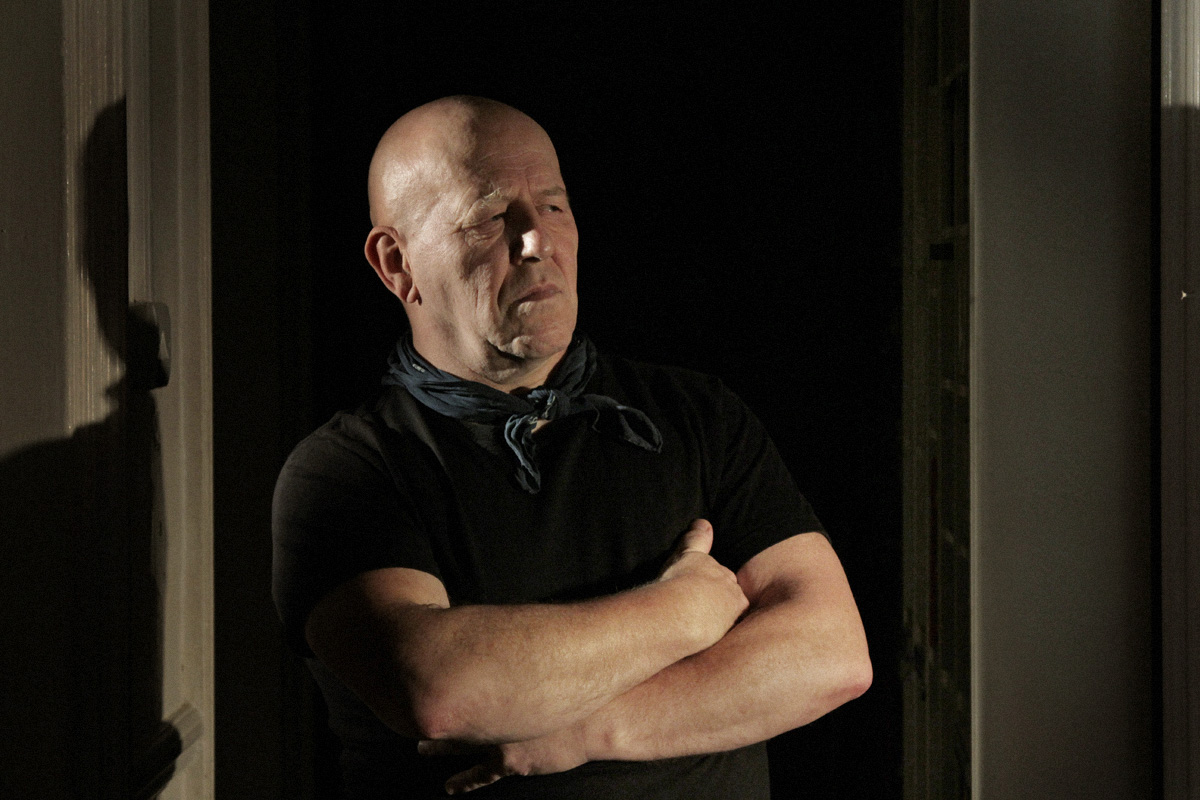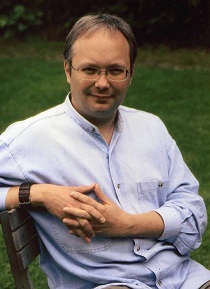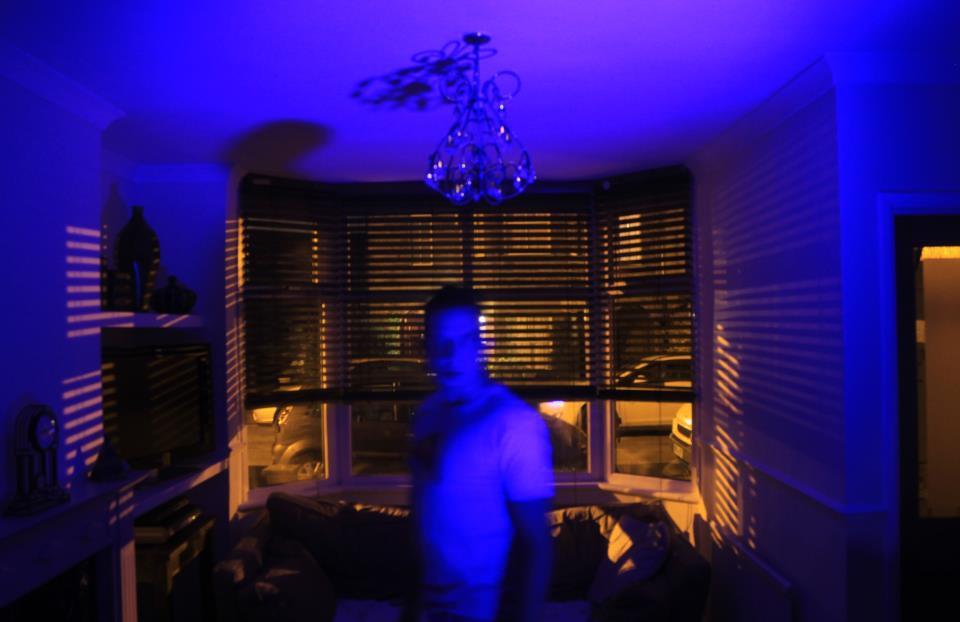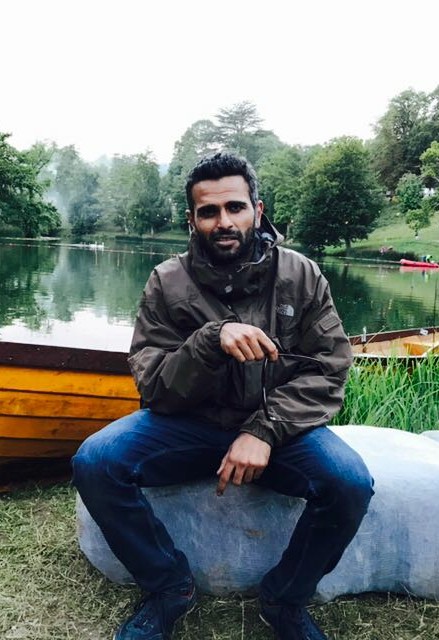ASK & DISCUSS
INDEXIf you have very limited Funds, does that mean you can't get into Filmmaking?
12 years, 7 months ago - Matthew Prince
Hi, I'm trying to start a discussion about how to get into Filmmaking with virtually no money. Right now, I cannot even afford to go to all of the seminars, talks, presentations and festivals that are advertised throughout the year. I'm only going to one this month as it costs £10! (The BFI Future Festival)
Even when I could afford to go to courses and talks years ago, I found them ineffective or disorganized. A lot of the people at them are like me, excited about filmmaking, but on the outside looking in. Like me, they pay good money to listen to stories and watch old footage, yet go home feeling none the wiser.
I also tried to set up several Filmmaker networking nights in city centre pubs but they kept failing. I hoped to bring people together, because as a writer, I have written several shorts and would love to make them, but now I know it would be rude to ask local working filmmakers to work on them for next to nothing. It seems people won't come out their house unless alcohol or hard cash is involved, sometimes the two!
I don't want to spend what little money I have on more expensive seminars and talks. All of that is a rip off, an industry created around "the industry".
Can anyone give any advice or pointers as to how they got into filmmaking, not from filmschool, but maybe unemployment or changing careers?
I'm sure people have been where I've been!
Matthew P
Only members can post or respond to topics. LOGIN
Not a member of SP? JOIN or FIND OUT MORE
12 years, 7 months ago - Ezra Peace
my advice would be to 1) just do it and 2) be patient. as with all good things there is a paying dues process. so the first time you do it will be worse than the 2nd time you do it and so forth. but before you know it you've got a massive team working their souls out making amazing stuff. as long as you're always doing the best you can with everything at your disposal you will eventually get to where you want. persistence and determination thats all you need. well maybe a wee bit of talent (but thats another discussion)!
12 years, 7 months ago - Michael Chandler
Matthew, I, like everyone else who has responded, share your pain! And I share Janus' view - JUST DO IT! Get out there and make some films - its the best way of learning you could have.
I had a period of unemployment which allowed me to focus on script-writing, but then all the film-making I've done has had to fit around some kind of day job. Being in a job of some sort, even if not ideal and nothing to do with film-making, has afforded me to make short films - much of my little 'spare' cash has gone on producing and promoting the shorts I've made (I would love to have film-making as my sole career, but financially its just not feasible at this point). But I also have learnt to make films cheaper and cheaper, out of necessity. I also agree with Chris above - you have make several films to 'hone your craft' and to learn what works and what doesn't. My first film 'The Fall' had several cast members, several locations, an outdoor night shoot, and some special effects in there that bumped up the budget; whereas my latest 'Move' - with one actor, one indoor location, and two crew members, hasn't cost anything at all, so far.
That has been a good, if challenging, exercise - writing scripts that can be made on no budget. And as a script-writer you've got an additional challenge of trying to persuade other people your scripts are worth making - so have you considered directing it yourself? As I've found that if you say you're making a film, people - via Shooting People or Casting Call Pro - will want to support it or be involved in some way.
Finally, in terms of the events and training that you have to pay for - I similarly haven't had great experiences at them. But I have found them useful for networking, getting to know other film-makers that may be in a similar position to you and may be able to support you if you can do the same for them. And I'm intending to do more, including Shooters in the Pub, now I have a few films under my belt and more confidence to go out there and talk to others about collaborative film-making.
12 years, 6 months ago - Ray price
Hi Matthew, if you have a good short and want to shoot give me a shout maybe we could collaborate, I'm working on a project now and always need help. I'm in south london too, get in touch
12 years, 7 months ago - Julian Kemp
Where are you based? Have you looked at the monthly "Shooters in the Pub"? I'm based in the South West and goto the Exeter event every month. We are now a very close group of filmmakers who all pitch in to help each other out, mostly for free! Every month we have crew, actors, writers all with their ideas and projects that they need help with. I'm sure there are people out there that would love to work on your idea!
12 years, 7 months ago - NICHOLAS PROSSER
There are a few councils who will provide limited funding to produce a short film. As an experienced screen drama director with additional producer credits, I have been invited on two occasions to sit on a panel for Chelsea & Kensington plus Wandsworth to judge who should receive funds to make a film. It was very different when I left school with few or no media courses, strong union closed shop policy and apparently few opportunities to make a production without a very large budget. I entered television through the "stage management door" as this was a job common to both theatre and television. Unfortunately this post no longer exists in television. The advice from others is all good but it may well be just one contact who will turn the tide for you, even if it means observing a production from the wings. If you have the passion, keep trying and don't give up.
12 years, 7 months ago - janus avivson
Some years ago I returned from France penniless and decided to get back into filmmaking, which I suspended for many years. I got a job as a bus driver for six months, I rented dvds from LoveFilms and saw several hundred best films in the world, I saved some money for a course in digital filming (now obvious but 9 years ago still a new thing), got a second hand PD150, and started filming. JUST DO IT, and practice will provide you with skill a thousand times more worth than seminars and lectures. Remember that this kind of activities is mainly (but not at all cases) run by people who are not successful as filmmakers. Because the real guys have no time to talk to others. Because they work!
Janus Avivson London
12 years, 7 months ago - Paddy Robinson-Griffin
Just found my post which seemed to vanish/reappear - thought I'd repost it here for completeness...
---
Short film production is a rich man's hobby. Nobody will make a short for free, there is no back-end cash on shorts, they never (well, approaching never) turn a profit. Camera hire, lighting, sound kit, electricity, catering, locations, transport, crew etc all cost real money. Industry people might do a favour for a day or two, but you need to know them well enough to ask and still cover their costs. Shorts make you a better writer/director and give you a calling card, but the crew get very little from it if anything.
People do not pay to watch short films. It is hard work getting people to watch free short films. You may even need to pay people to watch them (well, free booze anyway) as shorts are often indulgent and over-long, people have better things to do with their time than watch 20 dull films waiting for a good one. Look at how fast TV drama moves - look how much story is covered in the first few minutes of a modern TV drama, then how ponderous and plodding most shorts are. Then 3 mins of end credits for a 5 minute film...nobody cares! Get in, tell the story, get out - make shorts actually short and you might get more views.
There are some useful seminars out there - Elliot from Raindance will be happy to hear I came away from one of his many years ago having learnt stuff I have used since, and made a couple of shorts with a guy I met at it. The advantage of long-course film schools is that they have kit and like-minded students, so the good schools get you making film after film to get experience. The disadvantage is that most are incredibly expensive when you can get real-world experience for free.
How do you get training and experience for free? By getting onto set/location and working for expenses. Look at the 'collaboration' section of shootingpeople and you'll always see ads wanting crew. Either look for local runner roles, or email whoever advertised the other roles asking if you can come and run for them for expenses. Get on the ground and see what it's really like. Some people think it'll be glamorous and exciting (it isn't, it really isn't) and they're generally the ones who get very little out of seminars yet who those seminars are targetted at. It's hard, dirty, late, tiring work. It's incessant. 12-hr days are to be expected. You'll work tired and grumpy with other tired and grumpy people, there are no glamorous showbiz parties, it's a hard lifestyle. Start as a runner, and you'll see all the departments in action and you'll see if any actually interest you. You may well find you hate life on location, in which case it may not be the industry for you!
The hardest jobs to get into are the creative ones - direction, scriptwriting, etc. Everyone has a story inside them and feels the world will care if they tell theirs. The only way your scripts are likely to get made is if they're either *incredible* (and you can get someone to read them and finance them), or you pay for them yourself. There are a few (very few) grants around, but the reality is you work in another industry and save your money up to fund their production.
I have seen a lot of film-school and media studies students arrive on set/site/location certain they know it all just to be stunned how little they have learned in actual skills terms. If you divert any money you'd have spent on film schools etc into subsidising your life whilst you get onto as many sets and locations as possible, it'll get you under peoples noses, get you experience, get you known as a hard worker, get you known as someone people want to work with, then that'll lead to entry-level paid work in a department with a career progression. People in the industry reward merit and determination over degree qualifications big-time.
Hope some of that is helpful. It's my view only from having crossed over from IT back to Entertainment production. It's hard work but doable. Stick with it.
12 years, 7 months ago - Nicholas Hughes
I want to add something in response to Martin's postings: Just "doing it" and making a short film is NOT a way to success but it is a good way to learn many things along the way. Learning how to work with crews and actors, learning about framing shots, editing, sound, lighting, production details and logistics, handling local boroughs and the public. I respect the point that learning via theatre is a very good way to go but there aren't that many opportunities to that often enough . Making that 5 minute film for £200 won't attract producers with large budgets, but it'll get you into film clubs and local film networking events and you can take your next step up from there.
12 years, 7 months ago - Nicholas Hughes
Matthew; I've been through this as well. There are a lot of "courses", seminars and the like which you have to pay lots of money for and you end up with someone espousing their theories on film making and which leaves you with nothing tangible in the way of qualifications, contacts or experience. I'd stay clear of them if money is tight. Likewise a lot of film-makers are competative and at gatherings they don't want to share or get to know people outside of their group because you may be the person that gets the better paying gig instead of them. But I'd encourage you to keep looking out for free networking events, stuff that comes with training bursaries and save your pennies for making your own films because that's the way you learn best and make contacts by actually doing stuff. It's amazing what you can achieve with just a couple of hundred pounds or so and by saving up 10 or 20 pounds here and there you can get money for filming in a short time. Oh, and never give up!
12 years, 7 months ago - Ross Leeson
I've been making films for three years and now I'm getting traction. It's important to know exactly where you want to go and what you want to do. Remember too that Execs are used to people approaching them all the time asking for things just always be polite and positive. Have something to say write letters just stay positive and never give and you will get somewhere.
12 years, 7 months ago - Andrew Hinton
I recommend you check out http://nofilmschool.com/ and sign up to their weekly digest - there's a wealth of material out there and they aggregate it really nicely.
Good luck!
A
12 years, 7 months ago - Vasco de Sousa
Short answer, no it doesn't. Just budget your expenses wisely, which means making choices. And, if you find you can't make the films you want to with the budget you have, either make other films, or better yet, team up with others who can pool in their resources.
I didn't raise the money for a film I just wanted to make, but I submitted a tender to make a tourism film, and I'm sending another off today. And, I've reopened my campaign to finance my feature with a lower budget.
Meanwhile, there are things like write, storyboard, etc, that you can do without money.
12 years, 7 months ago - Martin Belderson
"..Just "doing it" and making a short film is NOT a way to success but it is a good way to learn many things along the way."
Nicholas, I agree. I also agree that sites like NoFilmSchool, Mandy, ProVideo and, of course, SP are wonderful resources (although if anyone has enough time to read all the NoFilmSchool links they're not getting out enough). The flip side is that I see Scott has done a MA at the NFTS. That’s the kind of course that does give you credibility (sorry, hope that hasn’t embarrassed him).
But Matthew asked if you can get into film-making with very limited funds. All I’ve being trying to say in my posts is that getting a break is not about how small your funds are, or how many no-budget films you make. It is about finding a way to get into the industry. Then it’s up to you to prove how good you are.
There is no single, easy way to become established but the point is you have to get a job. Hanging up your own shingle announcing that you’re production company with a snappy name impresses no-one; it like tattooing ‘absolute beginner’ on your forehead. Unless your parents are millionaires willing to fund you, it will get you nowhere. Think long-term. Put aside your dreams of overnight success. Get a job: as a studio sweeper, making tea in a post-production house, the post room of an agency, anything. Just don’t do it for free, you won’t be respected for it. And make friends on the job. With the right attitude, you make contacts that last for life. Who knows, someone might even take you on as writer? If you remain an outsider, you’ll never get that opportunity.
I think it’s great if people choose to dismiss the advice from all the pros in the thread. What do we know? It means there's less competition for those who decide to follow it.
12 years, 7 months ago - Shoaib Vali
Matthew, I know your a writer and all, but lets not stick to job titles at this very early stage, as we live and have been living in the digital age for nearly 10 years now, everything is possible to DIY, its not recommended as its maybe hard to be objective of your work, but definitely beats waiting and hoping for a job to drop on your lap. Make your own future pal, learn the filmmaking thing, shooting, editing aint hard, really, just needs practice, and have you seen some of the quality of footages that mobile phones churn out? sure, you wont have that film look or whatever, but what you will have is something to show writing skills for, quality of footages is overrated if you ask me, content over form, always, which I so miserably fail at! but you know, filmmaking is easy, especially if your a good writer, writer is always king, so you already have a head start there, get better at writing, learn the basics of filmmaking, and after awhile of doing just that (say a solid year), you will be unstoppable. And it's then, you can call yourself a writer or whatever you wish, as you can back that up. All the best mate.
12 years, 7 months ago - Kristina Hughes
Please take a look at this no/low-cost video series I co-produced for a fellow filmmaker. Be sure to reach out to your fans in short, but meaningful ways.
Also, take a look at http://www.ShowBizSender.com. There's a free trial. This is a great way to push info to your fans, buyers, investors, etc. Don't just rely on FREE Social Media. You need to see what people are clicking on, you need to give them a way to opt out, etc.
Lastly, here's an article on crowdfunding I contributed to: http://www.holdonlog.com/pages/AN-FUNDING.html
Make sure your quality is good, your social reach is great, tell your story, but do it right from the gate...it represents you after all and no one cares about you as much as you. But, if they are going to invest in you, it is a BUSINESS and you have to treat it as such.
12 years, 7 months ago - Henry Lawrence
Dear Mathew,
I'm completely with you in spirit.
People like you and me on a shoestring must be able to make better films than all the drivel they show on telly. Especially with affordable cameras and post production facilities.
I like the folk club/open mic model. I have used it very successfully for putting bands together out of nothing in the past.
Find a receptive local venue; they may (if they are a football pub) even have projection facilities.
Anywhere that puts on an open mic or a folk/jazz club will probably play ball.
Then distribute flyers around every local arts centre / pub that puts on gigs etc, asking for people to submit work. Fix a series of (say) six dates in advance, say once a month. Encourage people to show their short films, and give a short talk about them.
'Shooters in the pub' organise several events like this, unfortunately SoP are organised centrally and it is difficult to persuade them to establish a new SoP event. So you could be best off doing it yourself.
If you happen to be Ipswich based you would be most welcome to help me organise the one I am planning.
All the best,
Henry Lawrence (hlawrence30@gmail.com)
12 years, 7 months ago - Scott Clements
Matthew, I can't talk from experience, because I went the film school route. However, the internet is a great place to learn about filmmaking. For tech info, I find http://provideocoalition.com a great site. I try to check in every other day. Find out all you can about cameras and post production. Once you start getting technically excited and technically minded, it will be easier to attract quality people to work on your projects. Documentaries are probably the best way to start, because they're interesting and can be done for low budgets. Find interesting subjects in your community and then get camera, sound and editing freelancers to help you out. If you treat people well and are making an interesting project, you can get some amazing talent on board. It's the arrogant folks, with lousy ideas, who can't find a support network. Shooting People is a great resource for finding crew. Mandy.com as well. Good luck!
12 years, 7 months ago - Martin Belderson
Matthew, the industry seems to be divided into two groups: those who got in via friends or family; or those who forced their way through sheer persistence.
You have to network - and lot of Shooters have posted good advice about that already - but I have to say that - without funding - just picking up a camera and shooting is not going to cut it when people are deciding if you're worth employing or not. I know it goes against conventional wisdom to say this, but films made this way are, with very few exceptions, not great advertisements for the ability of anyone involved. What I would do, indeed did do - and I noticed that Nicholas did something very similar - is build production experience working back stage in the theatre. I amassed a huge amount of transferable skills, which then allowed me to be viewed as someone already working as a professional. I then parlayed that experience into crewing on film shoots and my career took off. I know quite a few directors, designers, and producers who also did much the same.
I am amazed more people don't take this route. One of the most important things was not just the skills learnt and professional respect awarded but that it meant I was networking with people inside the industry not just outsiders.
The fact that you are self-aware enough to raise this issue means you've got the smarts to make it. You just have to use them imaginatively.
12 years, 7 months ago - Chris Bairstow
My advice to all new and fairly inexperienced filmmakers is not to try and make a full production quality short film straight away.
First improve your filmmaking skills by creating several cheap and quick workshops of your own. Make your film two or three times as an experiment before you go into full production.
The most important skills a director requires are; to be able to develop a script, work with actors, learn to see the world through the lens of a camera, edit shots into sequences that tell a great story, and finding and motivating people to help make the film.
If you have a script get a couple of actors in a room or relevant location and film them acting out the script, use any type of video camera you can get hold of, and then edit this material together and show it to a few people to get some feedback. Do this several times with different scripts. Remember you are not going for production quality but quantity of ideas executed. The more mistakes you make the more you will learn.
When you have developed a great script, built up your experience, resources and contacts, then go and make a great film.
So find a local film/ video club or drama/ acting school near where you live and start getting to know other like-minded people.
Two books that I really like are.
Directing Feature Films by Mark W. Travis
The Film Director's Bag of Tricks by Mark W. Travis
Also check out this website on pitching
http://goodinaroom.com/blog/page/3/
12 years, 7 months ago - Martin Belderson
I 'just did it' twenty-five years ago and have continued to do so ever since. It did not get me a job, still hasn't, and I've had quite a successful career. There is a huge difference between satisfying your creative urge and establishing yourself in the film or TV industries.
Everyone should go out there and write/shoot/produce/direct/shoot (delete where applicable) their own films, but unless you are working with more experienced pros whose approach rubs off on you and who can also give you a helping hand, then it does next to nothing for your career prospects. You will remain, as you say, an outsider looking in.
I don't know where this 'just do it and you will be successful' meme originated but, along with undergraduate film production courses cynically over-hyping the Hollywood Dream, it is the most deceptive of all the modern myths about the industry. It makes me angry to think of all the people conned by it. And I know I would have fallen for it too if I were starting my career today.
As an aspiring writer I suspect you are in a different position compared to a lot of Shooters trying to break into the industry. For those interested in camera, sound, producing or editing, workshops can be a great place to network and learn specific technical skills. Personally, I cannot recommend the NFTS Short Courses highly enough. But I agree that seminars, workshops, and courses for writers are too often money-making exercises. There's a great apocryphal story of a famous writer giving a lecture at a creative writing course who, when asked what was the important advice he could give aspiring writers, said, "Well, I wouldn't be here listening to me, I'd be at home, writing."
For all aspring writers I'd suggest two things: both free. First, visit the BBC's Writers Room and work out a strategy to get taken on by their new entrant schemes. Then apply yourself to following that plan and do it with complete tunnel vision. Second, listen to every episode of the Scriptnotes podcast by John August and Craig Mazin. Here are two Hollywood screenwriters giving infinitely better advice and mentoring than any dozen has-beens or never-have done's running scriptwriting degree courses in the UK. In particular, listen to the episodes about how they broke in and then got established: not by writing brilliant spec scripts, but by getting menial office jobs at film production companies or agencies. It is how you make the contacts that give you the breaks in this industry. That's just as true of London as of LA.
P.S. Sorry, there's a third thing. You have to enter the Red Planet Prize. In fact, any and all writing competitions up to and including the Nicholl. Like all such events, winning is often a matter of luck - so much depends upon the judges' personal preferences and the filtering process - but a win gives you the beginnings of professional credibility.
12 years, 7 months ago - Jackie Clark
I was in a similar position several years ago and joined a local film making club. From there I source crew and equipment and like- minded support for my projects. Our club has a mix of professional and hobbyist film makers and over the years acquired a lot of equipment. We are called Sutton Film Makers. Look for a similar group in your area or start one yourself. I find people will come out of their house if you feed them well.
12 years, 7 months ago - Kristina Hughes
p.s. I forgot to mention, http://www.IndustryDeal.com has has some awesome seminars, webinars, software, etc. location -specific and global. Always 50-95% off. Spend your investor money wisely!
12 years, 7 months ago - Kieron Clark
Hi Matthew,
It all depends on what your plans are.
If, as a screenwriter, you'd like to get your work produced and directed by other people then the financial costs to you are going to be minimal, although obviously you'll be investing time, blood, sweat and tears in the writing process.
There are often posts in the Collaboration section of the Screenwriters' bulletin from producers and directors looking for scripts to film. I'm sure they get shedloads of replies, but if you can write something that takes account of the limitations of low-budget film-making and uses them to its advantage then you'll be off to a good start. By this, I mean short scripts (3-5 pages) with a strong story/concept, a small number of characters and a few, simple locations.
If you have a project that you're particularly passionate about and think could be achieved on a low-to-no budget, then you could always advertise for Producer / Director collaborators in the Film-Makers' bulletin. If you manage to get a Producer on board then it becomes his or her job to work out a way to make the film and raise the money to do so. Of course, there's a lot of blood, sweat and tears involved in plugging / pitching your idea and convincing other people to come on board.
The Shooters in the Pub meet-ups are also good places for networking and meeting other people who might be interested in collaboration.
If, on the other hand, you'd like to shoot something yourself, as Director and/or Producer as well as Screenwriter then, yes, it's going to cost you some money.
Again, I would say embrace the limitations that you have. Write something short and simple, with two or three characters and one or two locations. Set the film outdoors, so that it can be shot with only available light (and maybe some flags and reflectors). Make it short (5 pages or less) so that you can shoot it in one day rather than two.
Once you have a suitable script that you're happy with, advertise on SP for collaborators. Be clear and honest about what other people (actors, the DoP, the sound team) will get out of your project. Sell the story and tell people what you're planning to do with the finished film.
As a minimum, as the Producer of the film, you'll be covering the travel costs of your cast and crew and feeding them during the shoot. Make the sandwiches yourself the night before the shoot. Make sure that there's plenty to eat and drink on set. Have a shooting schedule and, ideally, a 1st AD on board, to ensure that everything runs smoothly. Be organised and be nice to everyone.
I shot a 5-minute film this way last year for less than £100. Obviously this was based on doing things collaboratively: the cast and crew were all found through Shooting People. The shoot took place over one day, outdoors, with a tiny crew and three actors. And, yes, I made the sandwiches myself.
The film's since gone on to be screened at several festivals, has been shortlisted for the Islington Short Film Award next week and made it through to the final shortlist of 10 in SP's September Film of the Month competition. You can see it here: https://shootingpeople.org/watch/107610/a-new-day
Good luck!
Kieron
Writer, Producer, Director, Tea/Sandwich-maker



















